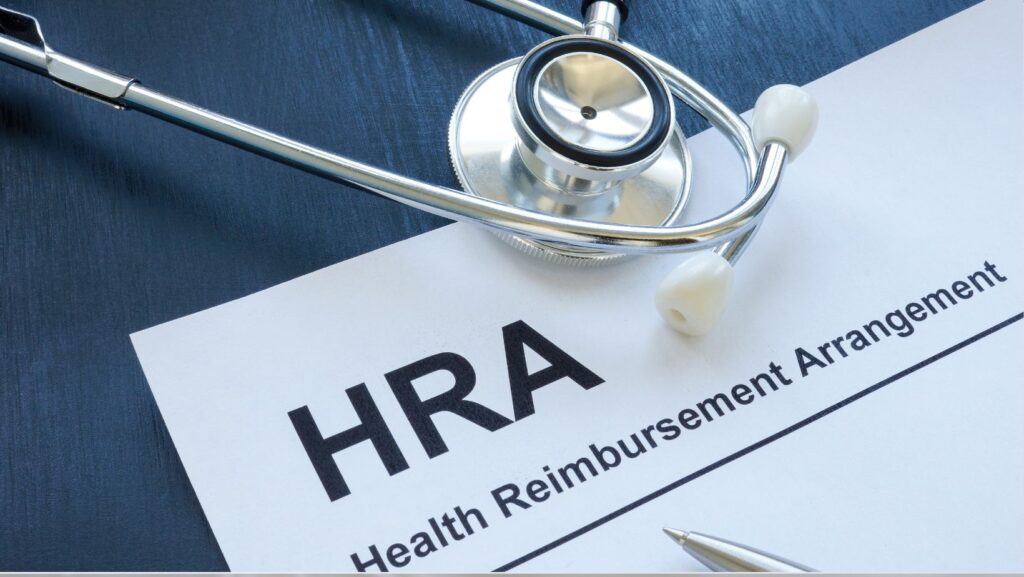In an evolving healthcare landscape, employers are continually seeking innovative ways to provide valuable healthcare benefits to their employees while managing costs. Among the emerging strategies, Health Reimbursement Arrangements (HRAs) have gained traction as a flexible, cost-effective, and employee-centered solution. It is important for employers to know why HRAs represent an important new strategy for delivering healthcare benefits, the advantages they provide for employers, and where employers can find a reliable HRA platform to provide these benefits to their employees.
What is a Health Reimbursement Arrangement (HRA)?
An HRA is an employer-funded benefit that reimburses employees for eligible healthcare expenses, such as medical costs, health insurance premiums, and other out-of-pocket expenses. Unlike traditional health insurance plans, HRAs are not pre-funded accounts. Instead, employers reimburse employees only when a claim is submitted and approved, giving them greater control over healthcare spending.
HRAs are customizable and can be designed to align with the specific needs of the workforce, providing employees with more autonomy in selecting their healthcare services. Employees benefit from tax-free reimbursements, while employers maintain control over how much they contribute annually.
Why HRAs Are a Strategic Solution for Healthcare Benefits
Flexibility in Plan Design
HRAs offer unparalleled flexibility, allowing employers to tailor the benefit to their workforce. Employers can decide what expenses to reimburse, set contribution limits, and align the plan with organizational goals. This flexibility is particularly valuable for businesses with diverse employee populations, as it enables customized solutions that cater to varying healthcare needs.
Cost Control for Employers
Healthcare costs can be unpredictable and challenging for businesses to manage, especially for small and mid-sized companies. HRAs empower employers to set a fixed annual budget for healthcare benefits.

By defining the reimbursement limits, organizations can prevent cost overruns and achieve greater predictability in their financial planning.
Encourages Employee Responsibility
HRAs shift some responsibility for healthcare spending to employees, encouraging them to make informed decisions about their healthcare. With greater control over how their benefits are used, employees are incentivized to seek cost-effective and high-value care, reducing wasteful spending.
Improved Employee Satisfaction
Offering an HRA signals to employees that their employer is committed to their well-being. The ability to choose their preferred health insurance plan or receive reimbursements for specific medical expenses empowers employees and fosters a sense of value and autonomy, leading to higher satisfaction and retention rates.
Compatibility with Other Benefits
HRAs can complement existing benefits packages, such as group health insurance or wellness programs. For instance, they can be paired with high-deductible health plans (HDHPs) to offset out-of-pocket costs, providing a robust healthcare benefits framework.
How HRAs Benefit Employers
The advantages of HRAs extend beyond financial considerations:
- Recruitment and Retention: In a competitive labor market, offering flexible and attractive benefits like HRAs can differentiate an employer and appeal to top talent.
- Tax Advantages: Employer contributions to HRAs are tax-deductible, and reimbursements to employees are tax-free. This dual benefit enhances the financial efficiency of offering healthcare benefits.
- Reduced Administrative Burden: Compared to managing a traditional health insurance plan, HRAs are often simpler to administer. Many HRA providers offer tools and platforms to streamline the process, further reducing the workload on HR teams.
- Adaptability for Small Businesses: For small businesses that struggle with the high costs of traditional insurance, HRAs provide an affordable alternative without compromising employee benefits.
Finding HRA Providers
Employers interested in implementing an HRA must choose a reliable provider to ensure seamless administration and compliance with regulatory requirements.

Here are steps to find the right HRA provider:
- Research Established Providers: Begin by exploring well-known HRA providers like Benepass, PeopleKeap, or Gusto. These companies specialize in offering tailored HRA solutions for businesses of various sizes.
- Evaluate Features and Services: Assess providers based on the features they offer, such as user-friendly platforms, compliance support, reporting tools, and customer service. Ensure the provider aligns with your organizational needs and budget.
- Consider Recommendations: Seek recommendations from industry peers, professional networks, or trade associations. Personal testimonials can provide valuable insights into the quality of service and reliability of a provider.
- Request Demonstrations: Many HRA providers offer free demonstrations of their platforms. Use these sessions to understand how their system works and whether it meets your organization’s requirements.
- Check Compliance Expertise: HRAs are subject to specific regulations under the Affordable Care Act (ACA). Choose a provider with a strong track record in compliance to avoid legal pitfalls.
Health Reimbursement Arrangements are transforming how employers provide healthcare benefits. By offering flexibility, cost control, and employee empowerment, HRAs represent a strategic alternative to traditional insurance models. For employers, the benefits include enhanced financial predictability, tax advantages, and improved employee satisfaction. With the right provider, implementing an HRA can be a seamless and impactful way to support the health and well-being of employees while maintaining a sustainable benefits program.



